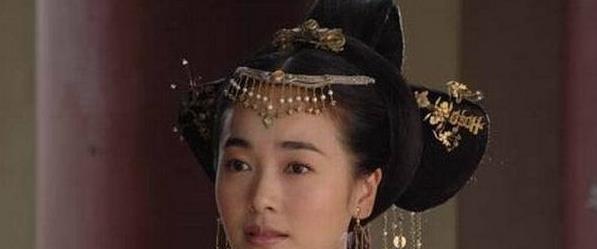In 2005, the TV series "The Great Han Towel" was broadcast, I don't know if you have seen it? This is a costume legend drama that tells the tragic and magnificent Chu-Han War at the end of the Qin Dynasty and the beginning of the Han Dynasty:
Li Cang, a general of Liu Bang who was seriously injured in the war, inadvertently broke into the wind town on the banks of Yun Mengze. The arrival of Li Cang changed the fate of several young men and women in this village. The young girl Xin recovered Li Cang, who was seriously injured and fainted, and was entrusted to Li Cang by her dying father, the girl became the general's wife overnight, and the neighbor boy Fu Shen followed and guarded Xin Chai, and has since become a jianghu warrior.

Lady Li Cang, the heroine of the TV series "The Great Han Towel", has a prototype in history, she is the owner of the tomb of Mawangdui Han excavated in Changsha, Hunan Province in the early 70s of the last century, and is the wife of Li Cang, the minister of Changsha during the Western Han Dynasty, more than 2,000 years ago.
The structure of the Mawangdui tomb is magnificent and complex, and the rafter chamber is constructed at the bottom of the tomb and consists of three rafters, three coffins and cushions. The coffin is surrounded and its upper parts with charcoal, which is sealed with white paste mud. The burial items in the tomb are very rich, and more than 3,000 relics such as silk fabrics, books, paintings, lacquerware, pottery, bamboo jane, seals, sealing mud, bamboo and wood ware, agricultural and livestock products, and Chinese herbal medicines have been unearthed.
At that time, the name of the owner of the tomb was determined based on the words on the seals found together in the Mawangdui Han Tomb. Experts interpret it as "concubine XinChai" according to the above words, so they named the owner of the tomb of Ma Wang Tuihan as "Lady Xinchai".
According to scientific calculations, the owner of the Mawangdui Han Tomb was about 50 years old when he died, the skin of the whole body was completely covered, the fingers and toes were clearly streaked, and the muscles were elastic. This discovery shocked the world and amazed the world. On May 3, 2013, the State Administration of Cultural Heritage included the Mawangdui Han Tomb in the list of the seventh batch of national key cultural relics protection units.
Although we find the name "Mrs. Xinchai" strange, we agree with the name. Isn't the name a symbol? Whatever our parents gave us, we called them. Or marry later, plus the husband's last name.
However, according to the latest research, the name of the owner of the Mawangdui tomb is not "Xin Chai", but "Avoid". Could it be that the previous name was a beautiful mistake? Has it really subverted our perceptions?
There is an article about the name of the owner of the Mawangdui Han Tomb - "Mawangdui Han Tomb Book, Late Interpretation and Subversion". It expounds the view that the relevant paleography scholars believe that the main name of the first tomb of Mawangdui Han Tomb is not "Xin Chai" but "avoidance". Moreover, the reinterpretation of "Mrs. Xin Chai" was carried out by the relevant staff of the Excavated Literature and Paleography Research Center of a famous university. It seems to be a real misreading, or how can it be reinterpreted?
As shown in the picture, the following is the seal of "Concubine Xinchai":
According to the research of paleographers, the two words "Xin Chai" should actually be understood as "avoidance", and the head of "avoidance" in ancient times was "辶", and at that time this word had not yet wrapped the "Xin" of "avoidance".
In ancient seal engravings, in order to seek fullness and make their seals look better, it is also normal for a word to be separated farther away. Therefore, the so-called "Xin Chai" Lady may be correct in the text should be read as "avoid".
"Concubine Xinchai" is really mispronounced, but "concubine avoidance".
It seems that we really can't interpret ancient words with modern eyes. Moreover, when encountering such things, you should really be very cautious and careful, seek truth from facts, interpret the most accurate and accurate truth and data to everyone, and never mislead people. To do learning, we must be down-to-earth and strive for excellence.
What is the truth? We also have to wait for the academic community to identify together, let's wait and see.
What are your thoughts on this? Welcome to leave a message, we exchange views together. Welcome everyone to pay attention to me, your support is the greatest help to me, I am a history of the king, thank you!